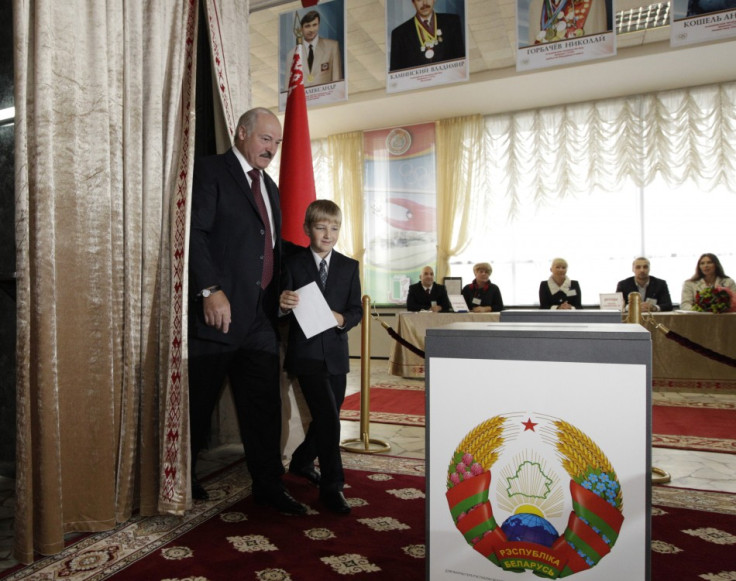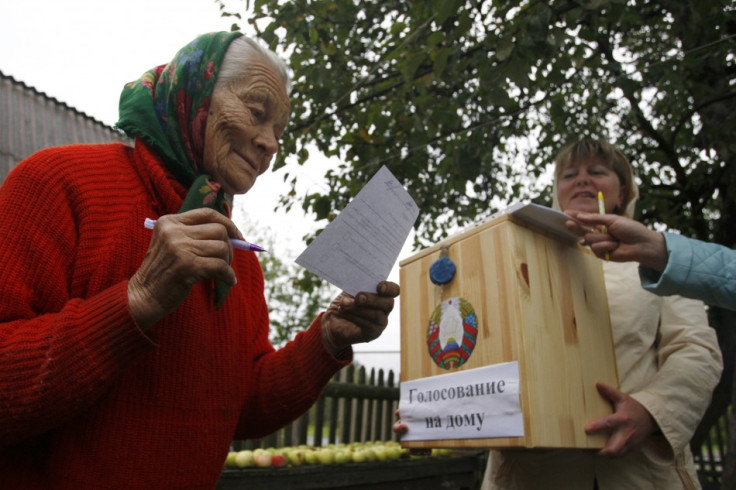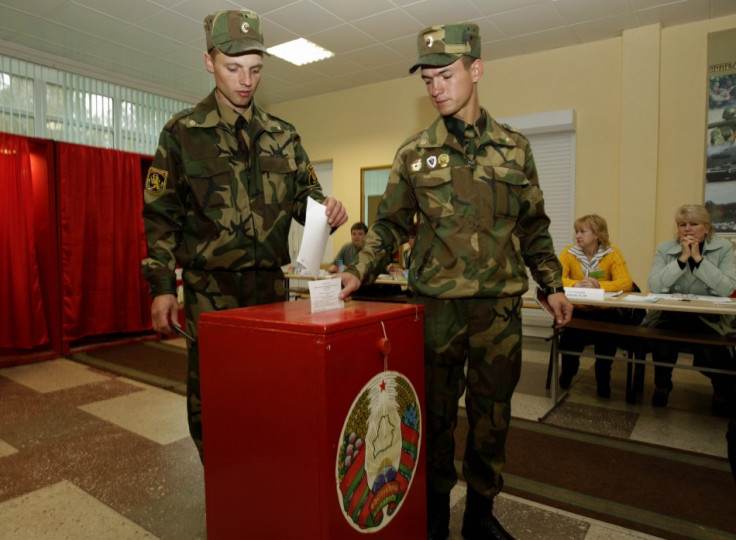Belarus Elections: 'Europe's Last Dictator' Completes Whitewash [VIDEO]
OSCE says elections not impartial after Alexander Lukashenko wins 109 of 110 seats available

An influential pan-European observatory has claimed Belarus's elections are "not free and impartial" after the country's latest parliamentary ballot failed to produce a single opposition member.
Of the 110 seats available in the parliamentary election, all but one were won by supporters of President Alexander Lukashenko, who is often described as eastern Europe's last dictator.
The last remaining seat was left unassigned, as the voter turnout in the related constituency did not pass the 50 per cent level required.
"This election was not competitive from the start. A free election depends on people being free to speak, organise and run for office, and we didn't see that in this campaign," said Matteo Mecacci, special co-ordinator for the Organisation for Security and Co-operation in Europe (OSCE) observer mission.
The two main opposition parties - United Civic and the BPF - boycotted the ballot in protest against the detention of political prisoners and alleged election rigging. As a result 16 districts had only one candidate.
"The so-called parliament has been turned into a department of the presidential administration, which appoints deputies every four years that are, in effect, state officials," said Anatoly Lebedko, head of the United Civic Party.
"Prominent political figures who might have played a role remained in prison or were not eligible to register because of their criminal record. Arbitrary administrative decisions also constrained the field of contestants, limiting voters' choices," added the OSCE.
According to Amnesty International, 11 political prisoners are currently in jail and other political activists were detained before the elections.
The election also raised "serious concerns" about the impartiality of counting procedures, the OSCE said.
"[I] deeply regret parliamentary elections in #Belarus have yet again failed to meet international standards," tweeted the President of the European Parliament Martin Schulz.
'Transparent and open'
Nevertheless, according to the Commonwealth of Independent States (CIS), a Russia-led organization comprising soviet republic countries, the vote was an example of good democracy in practice.
"[the vote was] transparent and open," said CIS chief observer Sergey Lebedev.
Lukashenko has ruled Belarus with an iron grip since 1994. No election meeting the standards of western democracy has been held since.
Lukashenko was confirmed president in 2010. His victory in the presidential election then triggered mass street protest in Minsk, which were violently repressed.


© Copyright IBTimes 2025. All rights reserved.






















